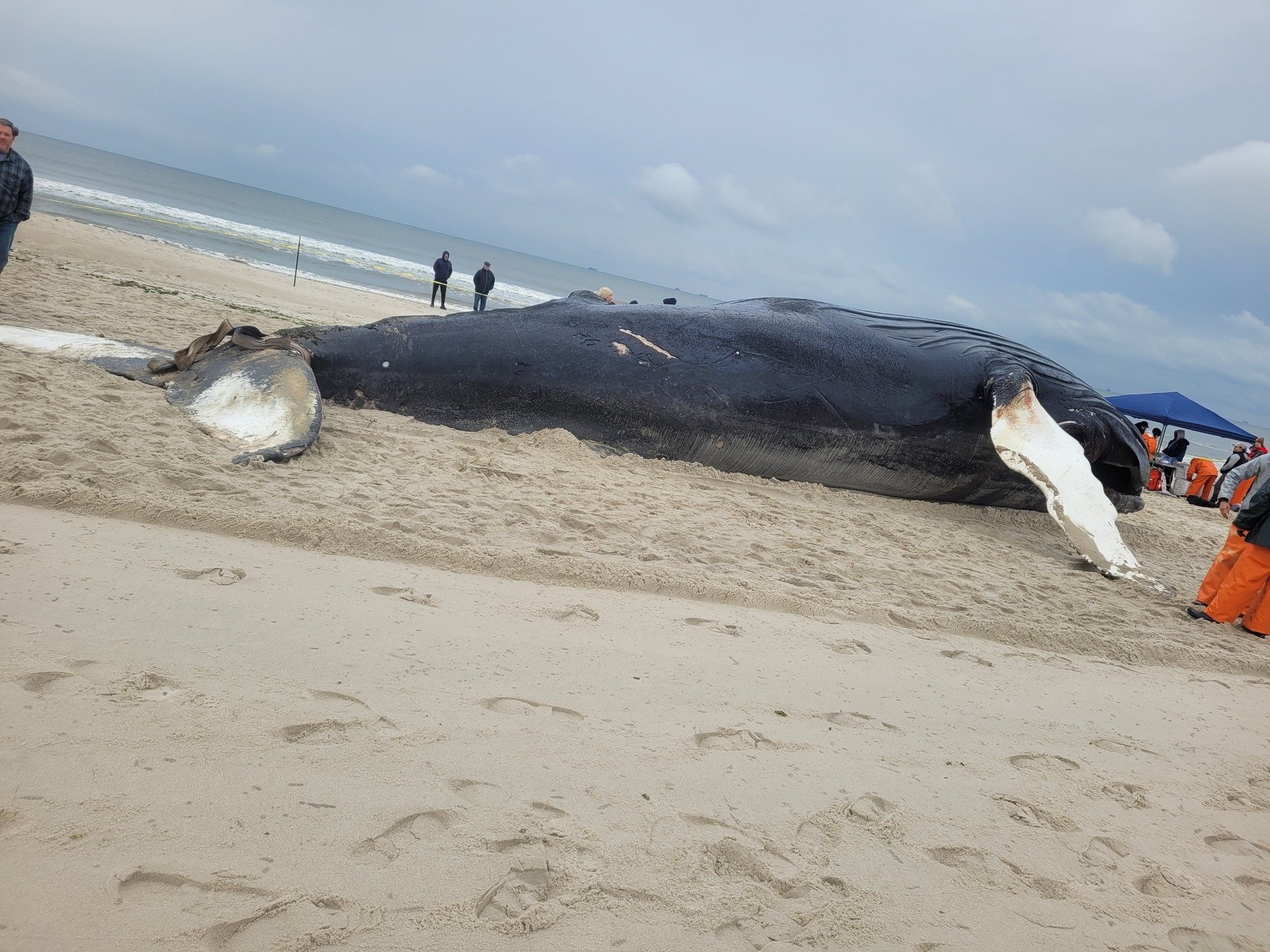Latest Whale Death in NY, Amid Investigation Into Increased Number of Deadly Incidents
A 25-foot minke whale found dead last week is the latest in an ongoing increase of whale deaths across the East Coast.
A minke whale found washed ashore on a New York beach. Credit: AMSEAS
A 25-foot minke whale was discovered dead on a New York City beach, in the latest of an increased number of minke whale mortalities throughout the Atlantic coast.
The animal was found with several broken bones and cut wounds across its body, according to the Atlantic Marine Conservation Society (AMSEAS) who were on the scene. A preliminary analysis of the injuries suggested they had occurred prior to death, and additional evidence of blunt force trauma was also found.
Samples will be sent for further analysis, but the preliminary evidence indicates that the whale died from a vessel strike, says AMSEAS.
Local whale strandings like these are said to have recently increased. Since Dec. 1, this is the fifth large whale to be found in New York, the 12th in the New York and New Jersey area, and the 23rd on the East Coast.
There is currently an ongoing investigation by the National Marine Fisheries Service into the increase in minke whale deaths along the Atlantic coast since 2017. Elevated minke whale mortalities have been reported along the coast from Maine through to South Carolina.
Threats to Whales
Modern technology and research is helping to report on whales and the threats that they face. Marine scientists recently created the first-of-its-kind whale migration map, by using satellite tracking data collected over the last thirty years for over 800 whales around the world.
The map helps to highlight the key habitats and ‘blue corridors’ used by whales to migrate, and identifies critical threats including ship strikes, chemical plastic, noise pollution, and habitat loss. But the most deadly threat for whales, according to the report, is the fishing industry. This is due to fishing gear and “ghost nets” - fishing equipment that is lost or abandoned in the sea - which are responsible for the deaths of around 300,000 whales every year.
“This report presents some of the most comprehensive data to date on large scale movements of whales through the world's oceans,” said Dr. Margaret Kinnard, Global Wildlife Practice Lead at WWF, who published the report. “The emerging picture underscores the need for swift, concerted action and investment of resources from national governments, international bodies, local communities, industry and conservation groups like WWF to stop this underwater assault on whales and protect these critical blue corridors."
Conservation groups are taking legal action against the fishing industry to help push through increased regulations that reduce the amount of discarded fishing gear, while scientists are working to prevent ship collisions using technology, including robotic buoys that can provide a general location of the marine mammals in near-real-time.
Robotic buoys are being used to help protect and monitor whales. Credit: Woods Hole Oceanographic Institution
We Have A Favor To Ask…
Species Unite amplifies well-researched solutions to some of the most abusive animal industries operating today.
At this crucial moment, with worldwide momentum for change building, it’s vital we share these animal-free solutions with the world - and we need your help.
We’re a nonprofit, and so to keep sharing these solutions, we’re relying on you - with your support, we can continue our essential work in growing a powerful community of animal advocates this year.
More stories:
Species Unite
A collection of stories of those who fight the good fight on behalf of animals.






The image of a rugged man grilling steaks or devouring a burger has been so deeply ingrained in our cultural psyche that it's rarely questioned. But it's time we did, says Ben Williamson, the Executive Director of Animal Outlook.